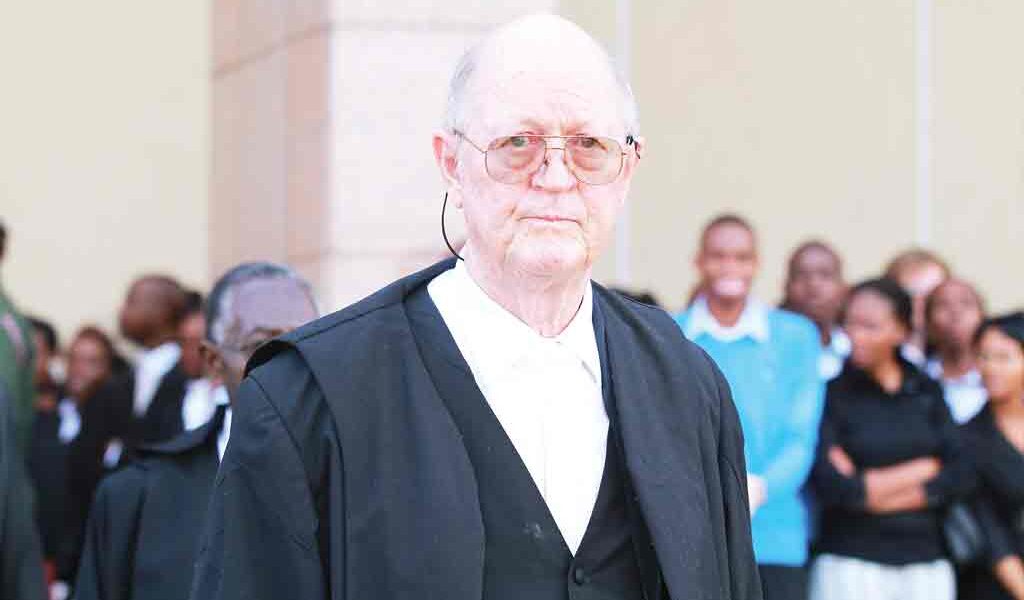- “There is need for citizenry consultation by constitutional referendum.”
- Suspicious of the lack of transparency in the amendments
QUEEN MOSARWE
Law Society Botswana (LSB) says the Court of Appeal (CoA) Amendment Bill to raise the retirement age of judges from 70 to 80 seeks to allow backdoor entry of Justices Isaac Lesetedi, Monametsi Gaongalelwe, John Foxcroft, John Cameroon, Authur Hamilton and Craig Howie. The six have had their appointments, which were made by President Ian Khama declared unconstitutional and invalid by Justice Abednico Tafa.
In a joint statement with Botswana Teacher’s Union, Botswana Land boards and Local Authorities and Health Workers Union, Botswana Sector of Educators Trade Union, National Amalgamated Local and Central Government and Parastatal Worker’s Union, Botswana Federation of Public Sector Unions, they say the amendment geared at undermining and frustrating Tafa’s judgment . Furthermore, their statement says that the amendment is couched in a manner that avoids the issue of renewals by giving a carte blanche to the appointment process. “That this is legal is not the point but it by no means reflects the rule of law but is rather, contrary the rule by law,” LSB said.
On 16th February 2017, Tafa ruled that section 4 of the CoA Act was constitutionally invalid and therefore must be struck down as the appointment of all justices of appeal had been prescribed by parliament contrary to section 99 (2) of the Constitution. Government applied to suspend Tafa’s judgment last week, but he ruled that government’s application had no or very little prospects of success while noting that CoA president Ian Kirby had no basis for suspending the application session of the CoA.
In the interim, Minister of Defense, Justice and Security Shaw Kgathi introduced a bill in parliament which he said had the objective of complying with the High Court decision. “The issues of determination by the High Court was whether section 4 of the Court of Appeal Act is incompatible with section 99 (2) of the Constitution and therefore invalid; and whether it is unconstitutional for the President to renew the appointment of a justice of appeal on the expiry of a three-year appointment,” Kgathi stated, adding that the bill further proposes an increase of justices retirement age from 70 to 80 years.
LSB and trade unions however hold a different view with regard to the increase of the retirement age. They say the citizenry was not consulted on the increase in the retirement age as had been done in the past with the 2001 referendum. “The government has not brought the citizenry into its confidence as to why Justices of Appeal need retirement age raised,” they stated, pointing out that “The haste with which the amendment is being done and the unbridled lack of transparency is a cause of great concern.”
According to them, transparency and consultation are a bedrock of any participatory democracy, warning that “Batswana should be worried at the growing impunity where laws are made without consultation of the people. They mentioned the 2001 Constitutional referendum where electorates participated in the amendment to raise the retirement age of the judges from 65 to 70. “The previously provided 65 as a retirement age, was amended in 2001 following a referendum in which the question put to the electorate was whether the retirement age should be raised,” they argued.
They further question the validity of the proposed amendment under Section 101 of the constitution as “it is doubtful because, amongst others, the question as whether parliament should be given an unlimited discretion to prescribe a different age was never put to the electorate during the referendum.” Thus, they say, even though the retirement age of judges was amended as a result of the referendum and despite the fact that most Batswana were unconvinced on the need for the increase, the amendment passed with 53% of the 20% voter turnout, that is, Batswana were in fact consulted.
“There is also a strong indication that all this is hastily done to entrench patronage and intended to frustrate recent heightened calls for localization of the CoA,” they maintained adding that “We all hope that this is far from the truth because if it is true it begs the question why? Can they be independent? Are the demographics going to continue to look more like a court during apartheid South Africa than those of an African country that has been independent for 50 years.”

